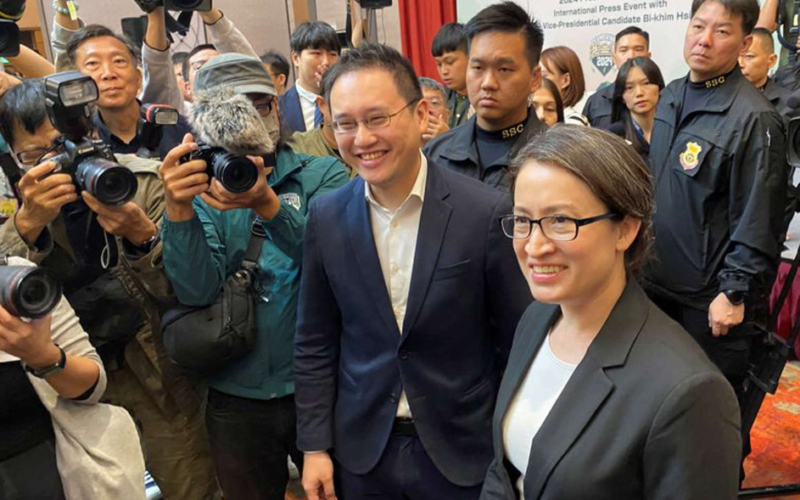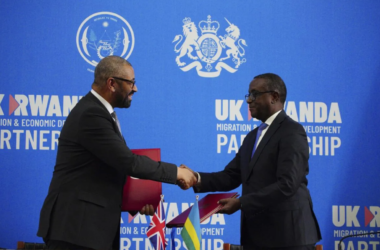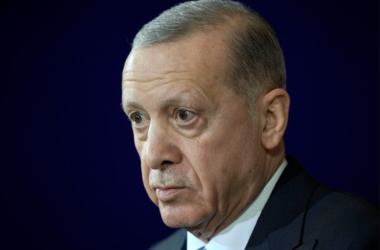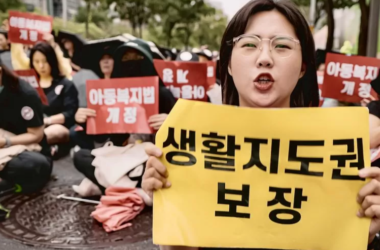Taiwan’s Democratic Progressive Party (DPP) has emphasized the necessity for dialogue to prevent conflict with China, outlining its approach amid growing disarray in the opposition’s campaign for the upcoming presidential election. As Taiwan grapples with increasing military pressure from China, the DPP is forging ahead with its campaign, presenting a united front, while the opposition struggles to reach consensus on its presidential candidate.
The DPP, in a significant move, revealed Hsiao Bi-khim, formerly Taiwan’s high-profile de facto ambassador to the United States, as the running mate for its presidential candidate, Lai Ching-te. Lai, currently the frontrunner, is poised to lead Taiwan if successful in the Jan. 13 poll. Their smooth progress contrasts with the challenges faced by Taiwan’s main opposition parties, particularly the Kuomintang (KMT) and Taiwan People’s Party (TPP).
Despite a prior agreement to collaborate against the ruling DPP, the opposition parties have failed to make headway in selecting a joint presidential ticket. This internal discord has dominated Taiwanese politics, raising questions about the opposition’s ability to present a unified challenge.
Hsiao, who faces sanctions from China for being labeled a dangerous separatist, emphasized the DPP’s commitment to dialogue and the importance of maintaining the status quo. She stressed that dialogue, not war, is the key to resolving differences in the Taiwan Strait.
The KMT and TPP, in a week-long dispute, have been unable to agree on a presidential candidate for their joint ticket. The KMT traditionally advocates close ties with Beijing, but the internal discord has overshadowed their collaborative efforts.
Enter Terry Gou, the founder of Foxconn, who is also vying for the presidency. Gou has attempted to mediate between the KMT and TPP to facilitate an agreement on their joint candidate. As the registration deadline approaches, Gou, along with TPP chairman Ko Wen-je, engaged in talks with KMT’s Hou Yu-ih, seeking a fair and just three-way discussion to achieve opposition collaboration.
The disarray in the opposition’s campaign has intensified speculation and uncertainty in the lead-up to the elections. As the clock ticks down to the registration deadline, the internal dynamics within the opposition could significantly impact Taiwan’s political landscape, potentially influencing the balance of power and relations with China.








